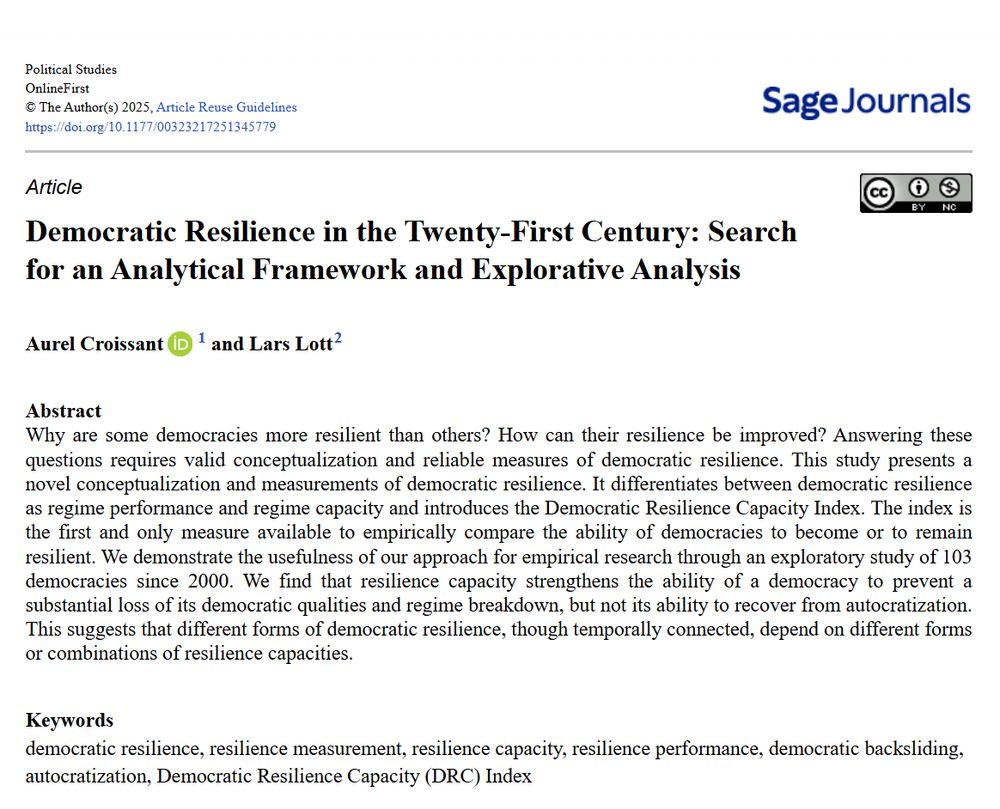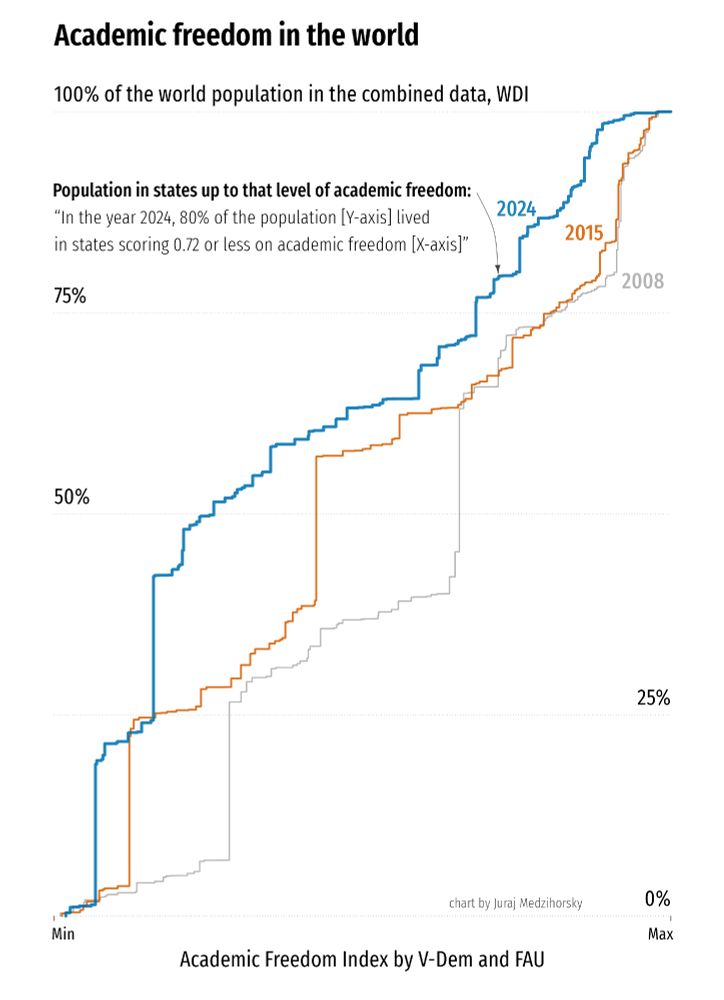Lars Lott
@larslott.bsky.social
300 followers
400 following
30 posts
Postdoctoral researcher in political science | Friedrich-Alexander-Universität Erlangen-Nürnberg | academic freedom | democracy
Posts
Media
Videos
Starter Packs
Pinned
Lars Lott
@larslott.bsky.social
· Jul 1

Democratic Resilience in the Twenty-First Century: Search for an Analytical Framework and Explorative Analysis - Aurel Croissant, Lars Lott, 2025
Why are some democracies more resilient than others? How can their resilience be improved? Answering these questions requires valid conceptualization and reliab...
doi.org
Reposted by Lars Lott
Krisen, Frust oder Angst vor dem sozialen Abstieg, das sind einige Ansätze, um das zu erklären: Warum so schnell viel mehr Menschen radikal rechte Parteien unterstützen, nicht nur in D. Seltener wird geschaut, inwiefern die Einstellungen schon da waren. share.deutschlandradio.de/dlf-audiothe... 1/

Rechtsextremismus - Warum die radikale Rechte so stark wird
Rechtsradikale Parteien profitieren von nachlassender Stigmatisierung. Forschung zum politischen Verhalten zeigt, dass extreme Positionen offener gelebt werden.
share.deutschlandradio.de
Reposted by Lars Lott
Reposted by Lars Lott
Reposted by Lars Lott
Reposted by Lars Lott
Lars Lott
@larslott.bsky.social
· Oct 1
Lars Lott
@larslott.bsky.social
· Oct 1
Reposted by Lars Lott
Reposted by Lars Lott
Lars Lott
@larslott.bsky.social
· Sep 5
Lars Lott
@larslott.bsky.social
· Sep 5
Lars Lott
@larslott.bsky.social
· Sep 5
Lars Lott
@larslott.bsky.social
· Sep 5
Lars Lott
@larslott.bsky.social
· Sep 5
Lars Lott
@larslott.bsky.social
· Sep 5
Lars Lott
@larslott.bsky.social
· Sep 5
Lars Lott
@larslott.bsky.social
· Sep 5
Lars Lott
@larslott.bsky.social
· Sep 5









